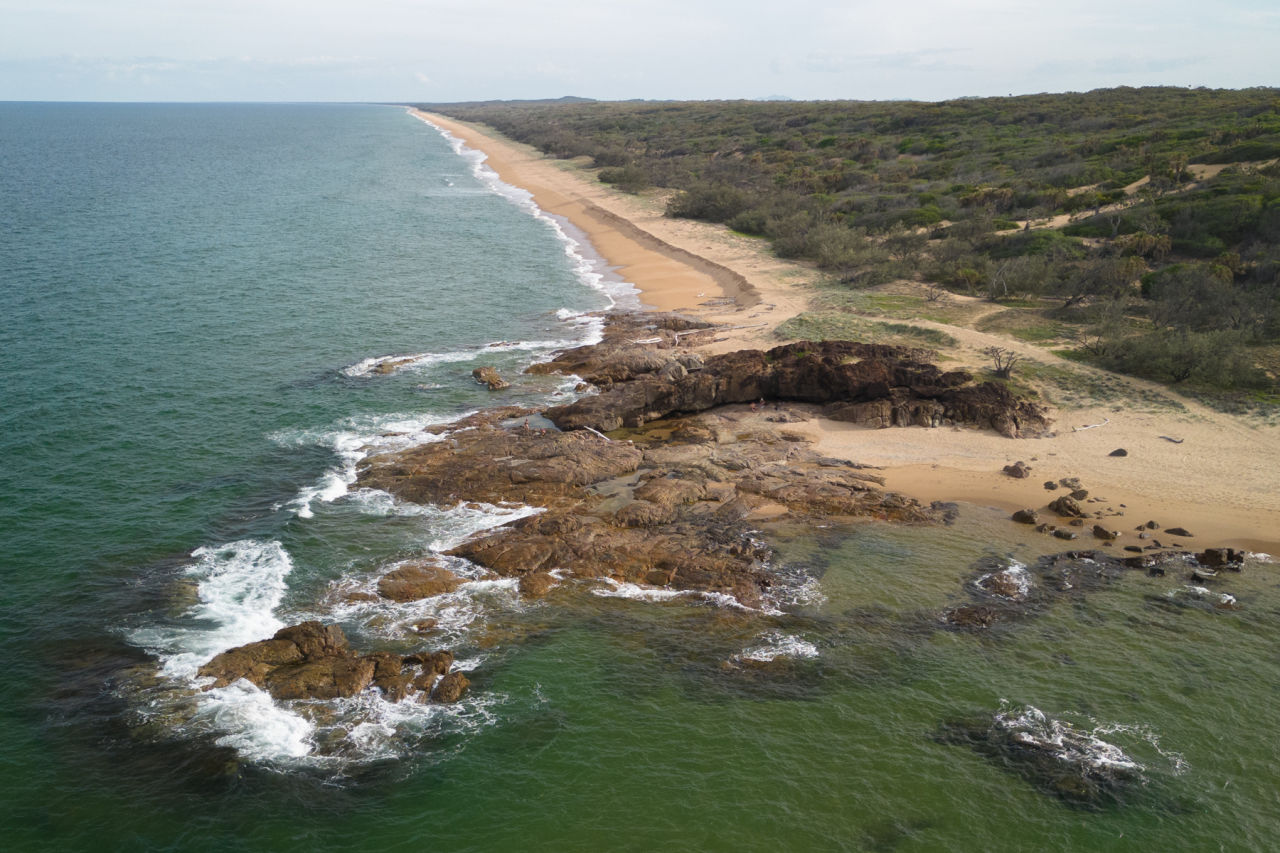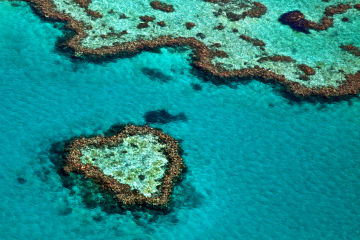News ·
On the Front Line with Wreck Rock Turtle Volunteers
Nev and Bev McLachlan have been on the frontlines of Queensland’s turtle conservation for over 40 years, safeguarding valuable nesting beaches and inspiring volunteers to protect these iconic species.
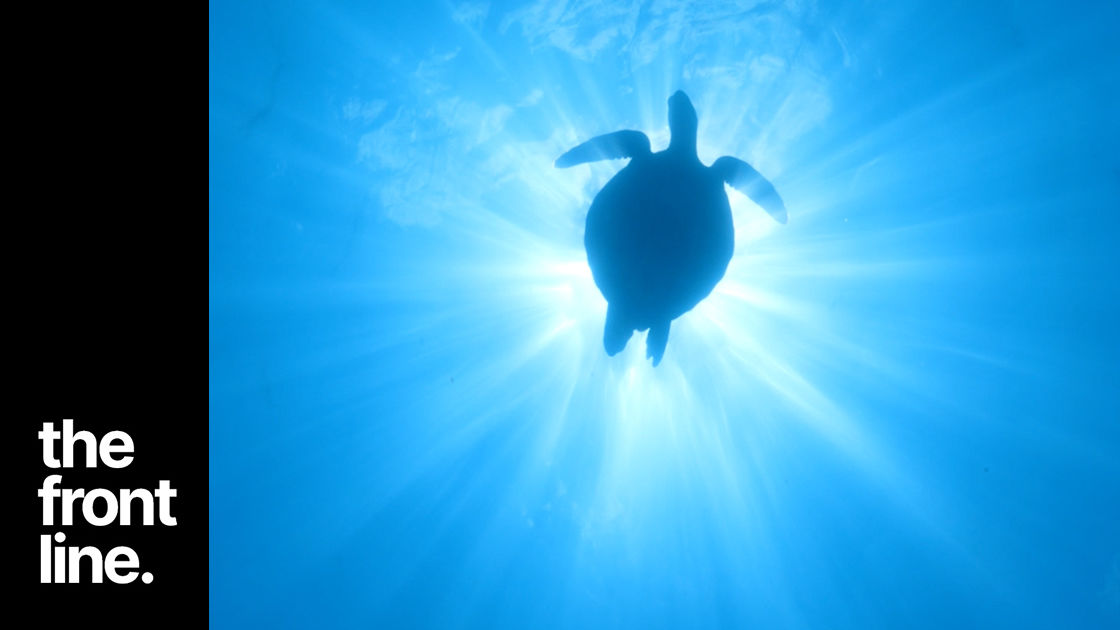
Nev and Bev McLachlan have been on the front line caring for marine turtles since the 1970s. Every year they volunteer at Wreck Rock in the Deep Water National Park where they help monitor and protect sea turtles.
Sea turtles are iconic emblems of the Great Barrier Reef. Every summer, female turtles make epic migrations back to the beaches where they were born to lay hundreds of eggs in nests in the sand. This journey is full of challenges, with many species increasingly at risk from entanglement, pollution, coastal development and climate change.
Every year since 1977, the couple have spent the summer at Wreck Rock to be able to carry out vital turtle conservation, monitoring and research. The changes they’ve witnessed over that time have been stark.
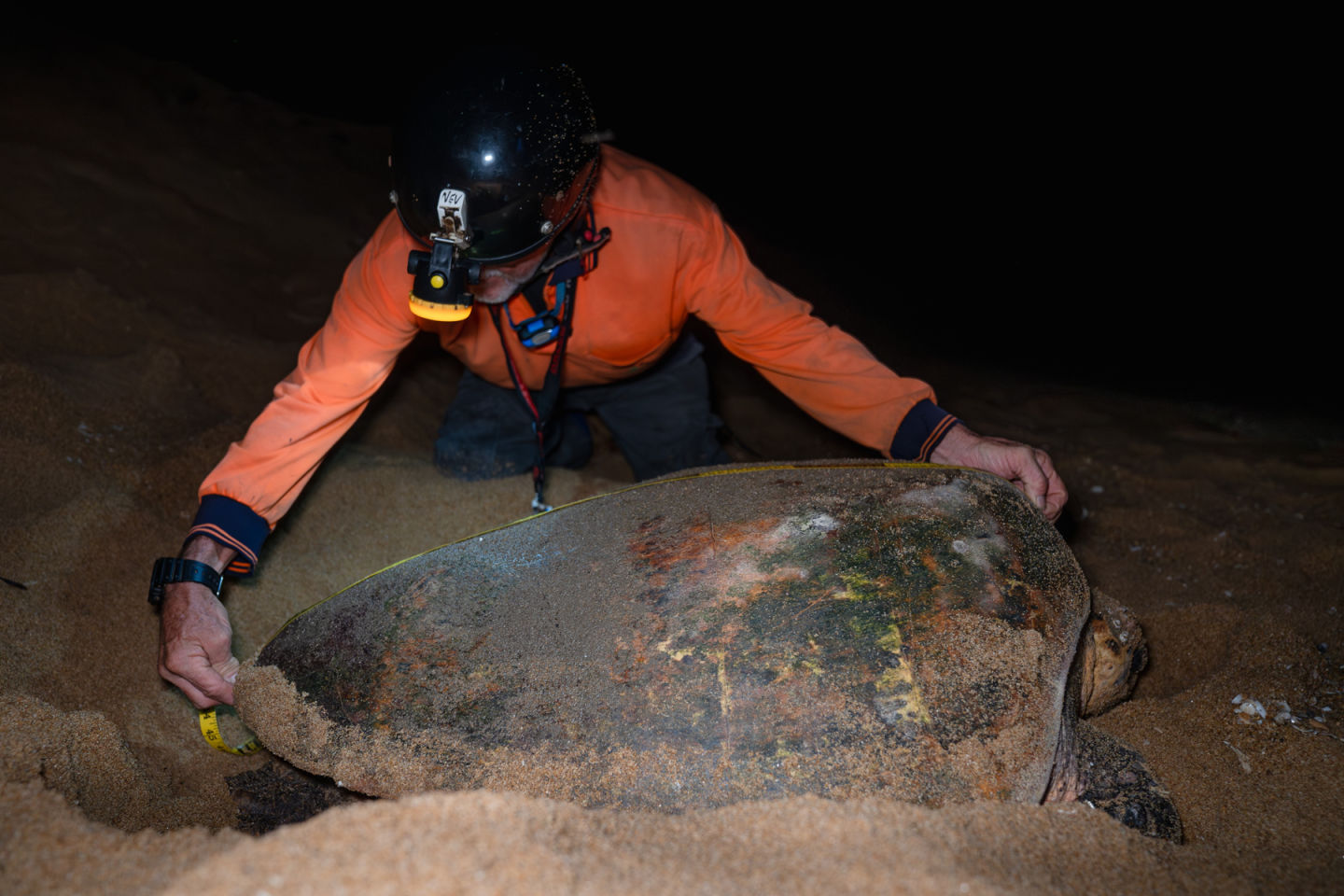
Nev measuring the carapace of a nesting loggerhead turtle. Credit: Ben and Di
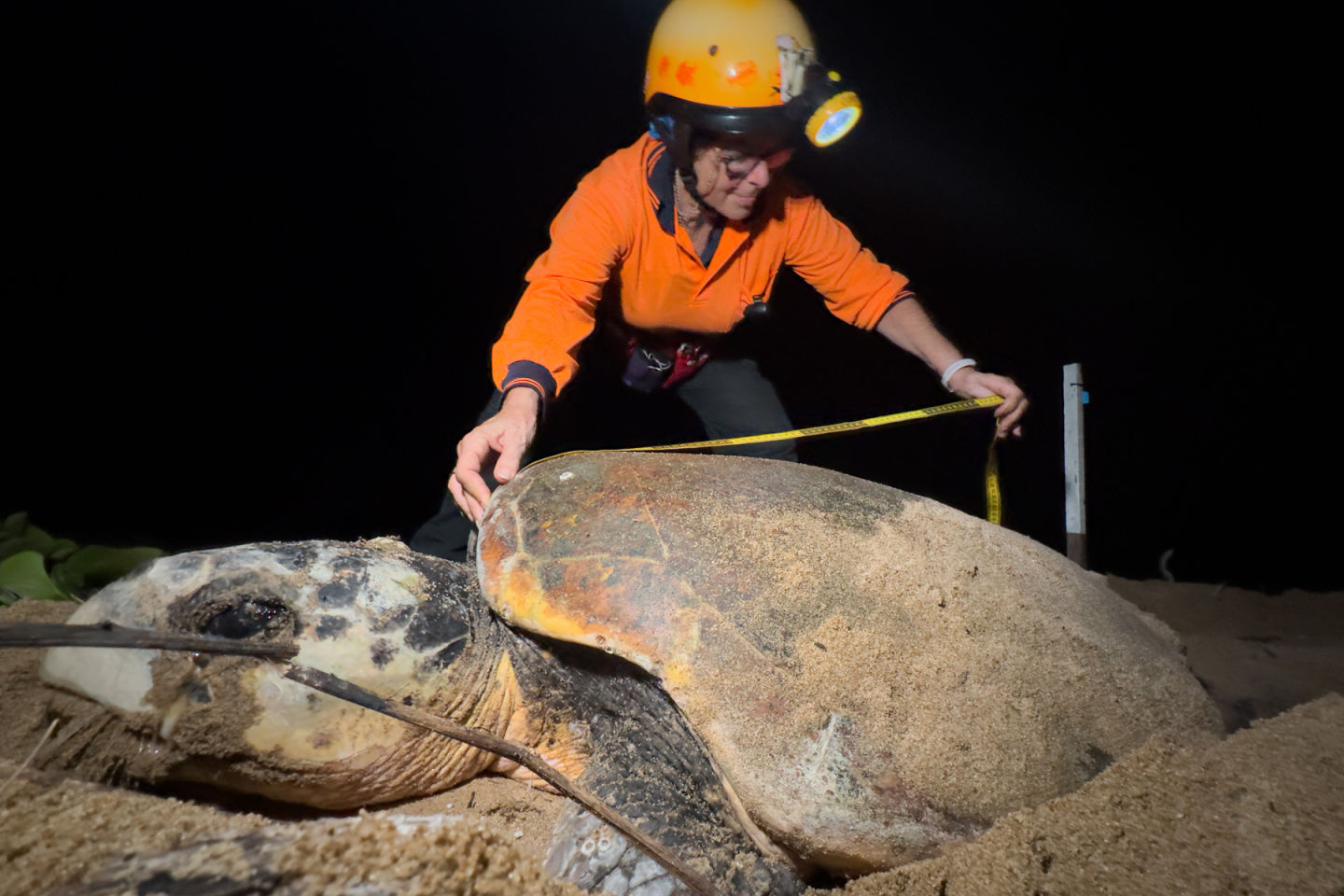
Bev measuring the carapace of a nesting loggerhead turtle. Credit: Ben and Di
“Turtles are a great indicator of the health of our oceans and we want to conserve them. Outside of Mon Repos, it’s probably the longest continuous monitoring site for loggerheads in the whole of the South Pacific,” Nev explained.
“When we came here in the seventies, we were here for two weeks and we saw 250 individual turtles in that time frame. We’re now here for nearly three months and at the moment we’ve got 66 individual turtles coming onto the beach. The decline we’ve seen is extremely concerning,” Bev reflected.
Over time they have recruited a steady stream of dedicated volunteers, who patrol beaches, tag turtles and relocate nests. It's hard work but Nev and Bev are focused on the future and encouraging the younger generation of turtle volunteers.
“Nev and I aren't getting any younger and one of my biggest concerns is who is going to continue this project when we are no longer able to. I'm hoping that we're going to get to at least 50 years of research here and I'd hate to just see that stop,” said Bev.
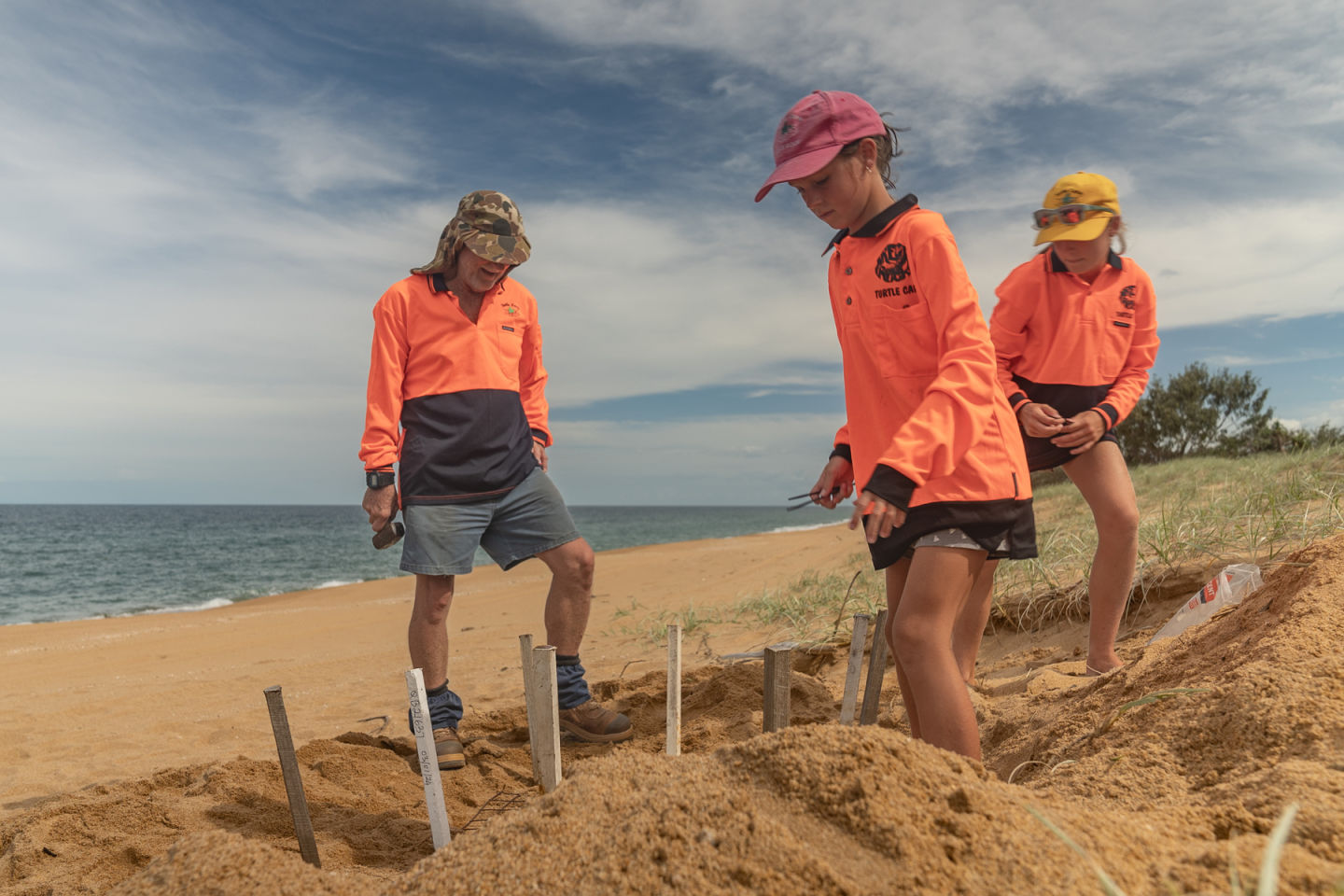
Nev and volunteers help cover nests with mesh. Credit Ben and Di.
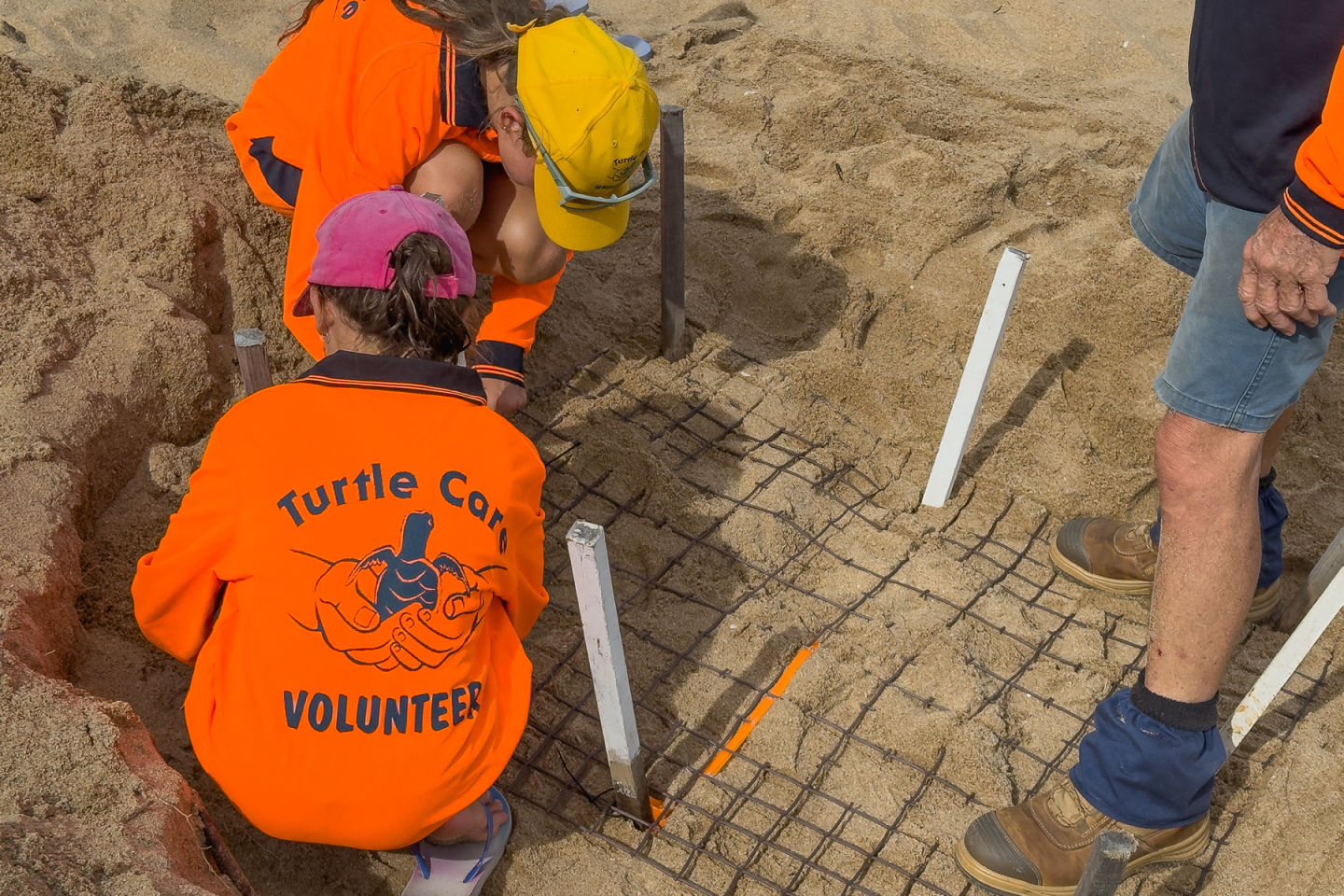
Nev and volunteers help cover nests with mesh. Credit: Ben and Di
What keeps the pair going is the knowledge that their work is making a real difference by ensuring more hatchlings survive every breeding season. Nev and Bev are passionate about grassroots conservation and have seen firsthand the impact that consistent dedication can have on people and the environment.
“We’ve recruited lots of people who have come to us and said ‘we want to help’, and some of those people still work with us now. I still get goosebumps when we’re out on the beach and you see people’s reaction to what’s happening and their amazement,” said Nev.
Beyond decades of work at this critical nesting beach, Nev and Bev are working with other community leaders to actively cultivate a network of individuals across Queensland to combat threats such as climate change, marine debris and predators, ensuring the protection of these turtles for generations to come. The Queensland Marine Turtle Network (QMTN) aims to increase collaboration and provide connections across the state’s community turtle groups.
Spread along Queensland’s coastline are over 50 community groups, Indigenous Land and Sea Ranger groups and affiliated organisations that undertake marine turtle monitoring and conservation (through the Queensland Turtle Conservation Program) or stranding response. The QMTN’s goal is to ‘join the dots’, enabling greater communication between groups, sharing knowledge and experience while supporting access to practical approaches to reduce threats to marine turtles.
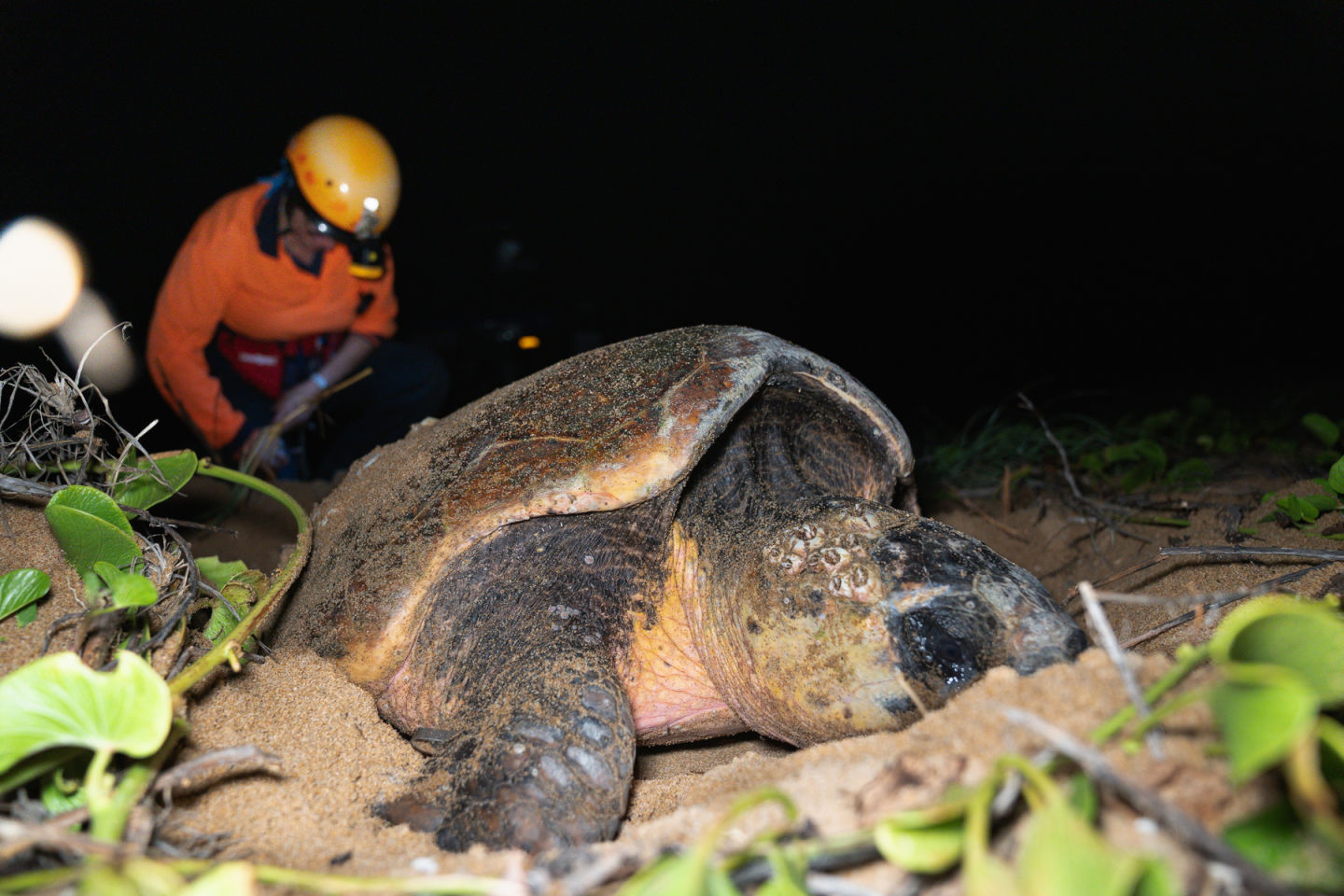
Nev and Bev collect valuable data while a loggerhead turtle is nesting. Credit: Ben and Di
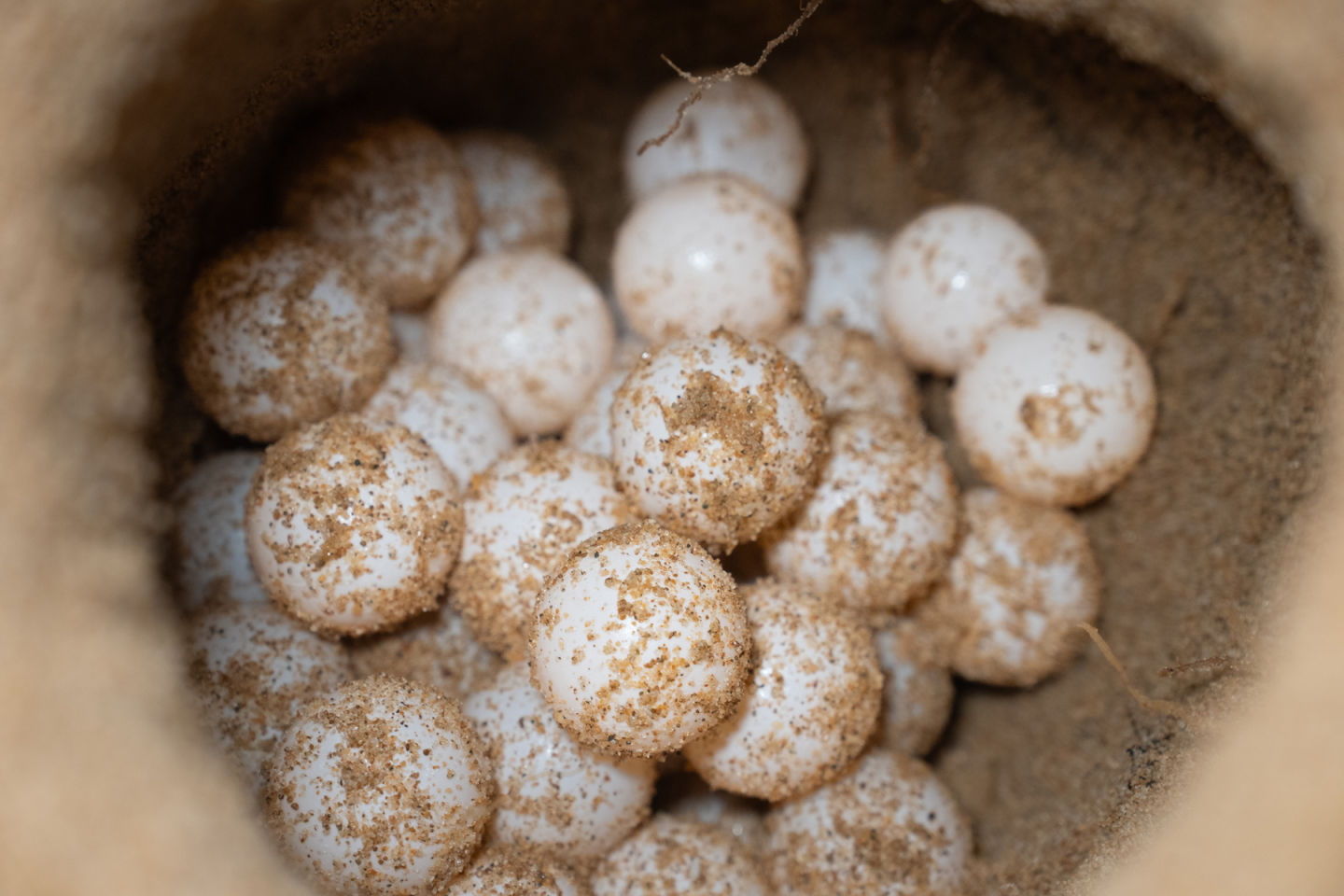
A peak inside the egg chamber. Credi: Ben and Di
“The QMTN supports the people who conserve marine turtles, with a shared long-term goal of benefiting turtle conservation,” said Sue Sargent, QMTN Project Manager.
“Many groups and their volunteers, like Nev and Bev McLachlan, have made a lifetime commitment to conserving marine turtles. The QMTN will increase the resilience of marine turtle organisations in Queensland, supporting their work.”
For nearly 50 years Nev and Bev have stood steadfast on the front line. Now as they look back on the progress they've made, their hope burns bright for the future by inspiring the next generation and fostering connections, ensuring that their lives’ commitment to better understanding these turtles continues on for years to come.
